Rebooting the Economic Security Bureau, tax audits, judicial practice: UBA holds the 13th Tax Forum
On Thursday, September 26, the Ukrainian Bar Association held the 13th Tax Forum, marking the beginning of a new season of UBA forums and conferences.
The event provided an excellent opportunity for the exchange of expertise among leading tax law professionals, government officials, judges, law firm leaders, and business representatives. Participants had the chance to discuss the latest trends and challenges in the tax field, as well as to find answers to pressing questions.
This year’s Forum focused on issues such as tax audits, trends in judicial practice, and international taxation.
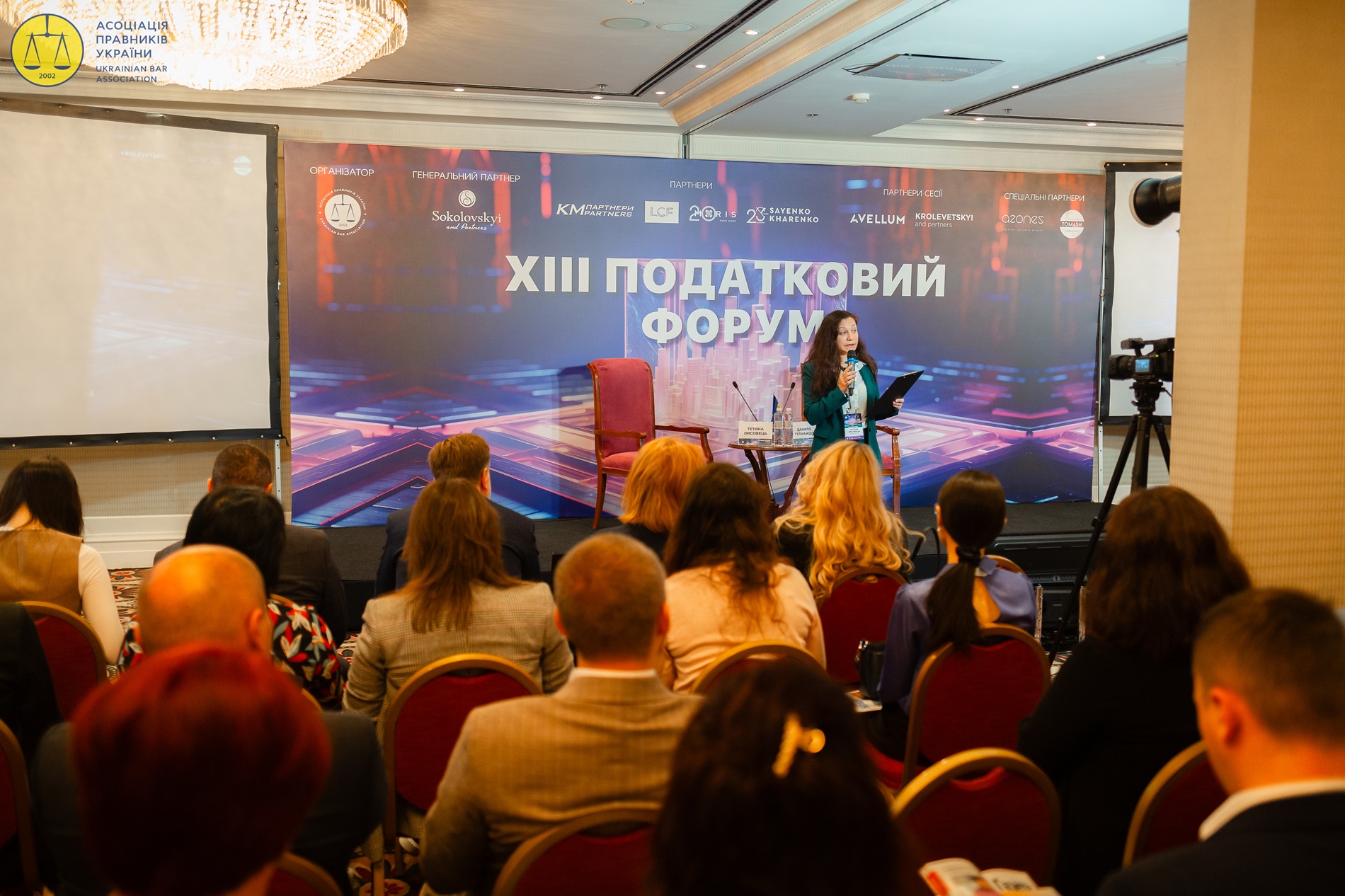
The event was opened by Tetiana Lysovets, Vice President of the UBA, Senior Partner at Sokolovskyi and Partners. The Forum commenced with a tribute to the Ukrainian defenders who have fallen in the fight against Russian invaders.
Prior to the panel discussions, the Forum featured an interview with Danylo Hetmantsev, Chairman of the Verkhovna Rada Committee on Finance, Tax, and Customs Policy, conducted by Tetiana Lysovets.
Mr. Hetmantsev rejected the notion that there is a confrontation between the state and business in Ukraine. Instead, he stated, the real conflict is between the state and law-abiding businesses on one side, and corrupt actors and those involved in shadow economy schemes on the other. He called on the legal community to support government policies aimed at combating shadow business practices.
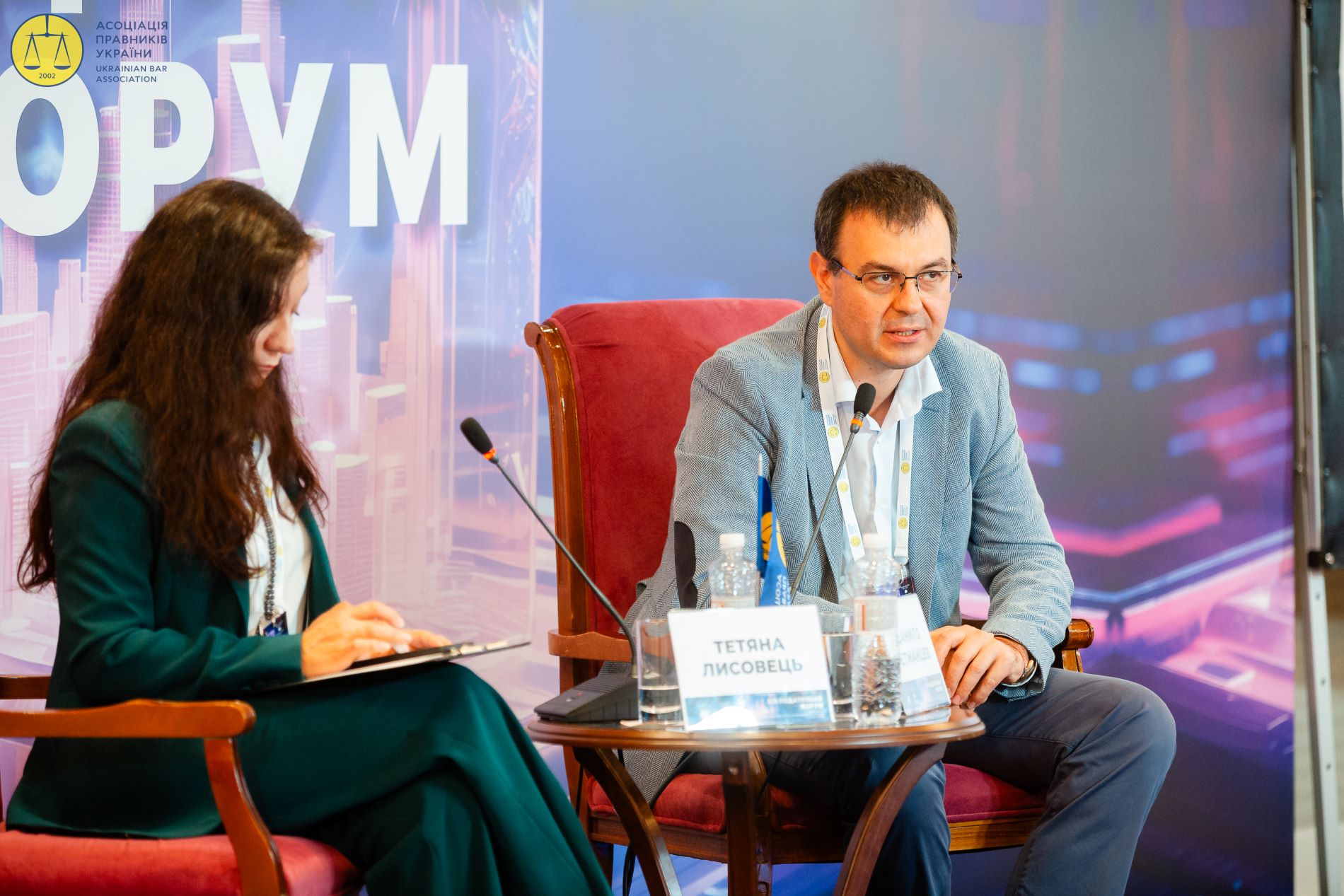
Mr. Hetmantsev also highlighted the need to reform Ukraine's simplified taxation system, as the current "tax loopholes" would prevent the country from joining the EU. He stressed that the simplified tax regime should only be available to small businesses, not medium or large enterprises. However, he added that no changes to the simplified tax system would be made until the end of the war.
On the topic of tax cases in courts, Mr. Hetmantsev emphasized that the State Tax Service of Ukraine should not be demonized, and each case should be examined individually.
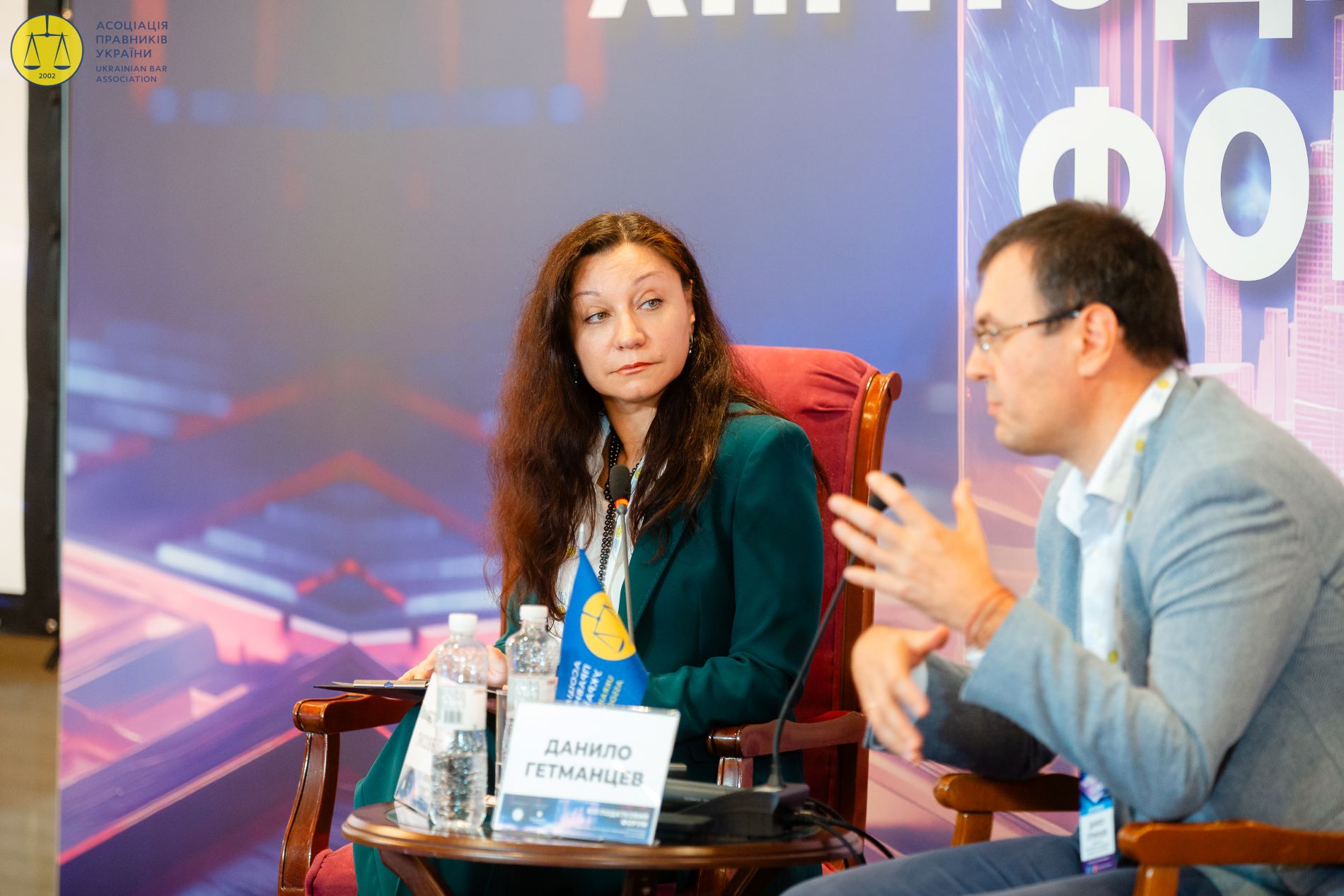
Regarding customs reform, the MP underlined its goal to dismantle long-standing corruption and cronyism within the system. He gave the example of the Zaporizhzhia region, where after a local tax inspector was caught taking a bribe, the entire leadership of the regional tax office was dismissed.
Mr. Hetmantsev also noted that the rebooting of the Economic Security Bureau of Ukraine (ESBU) would take around two to three years and that the electronic audit system would be fully implemented by March 2025.
The first session of the 13th Tax Forum focused on restoring trust in regulatory and law enforcement agencies as a precondition for expanding their powers. The session was moderated by Tetiana Lysovets.
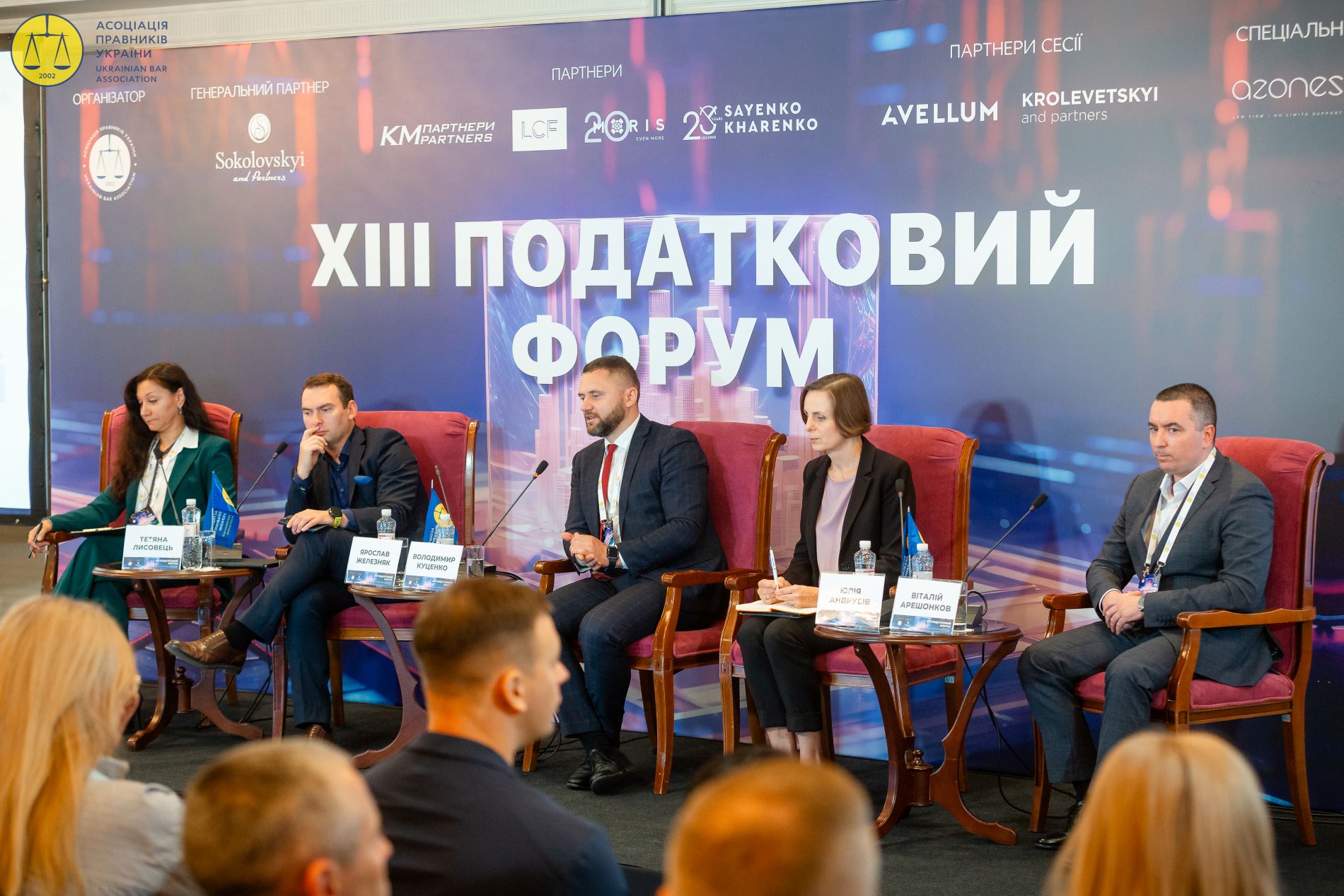
The panelists discussed various pressing issues faced by taxpayers, including transparency in decision-making by regulatory bodies, tax compromises, and the reformation of the ESBU and customs.
Yuliia Andrusiv, Deputy Business Ombudsman, pointed out that there has never been genuine trust in regulatory and law enforcement agencies in Ukraine, largely due to the country inheriting many practices from the Soviet system. She suggested that while international experts and organizations providing technical assistance could have a positive impact, they would not resolve all the problems that regulatory bodies face in their day-to-day activities.
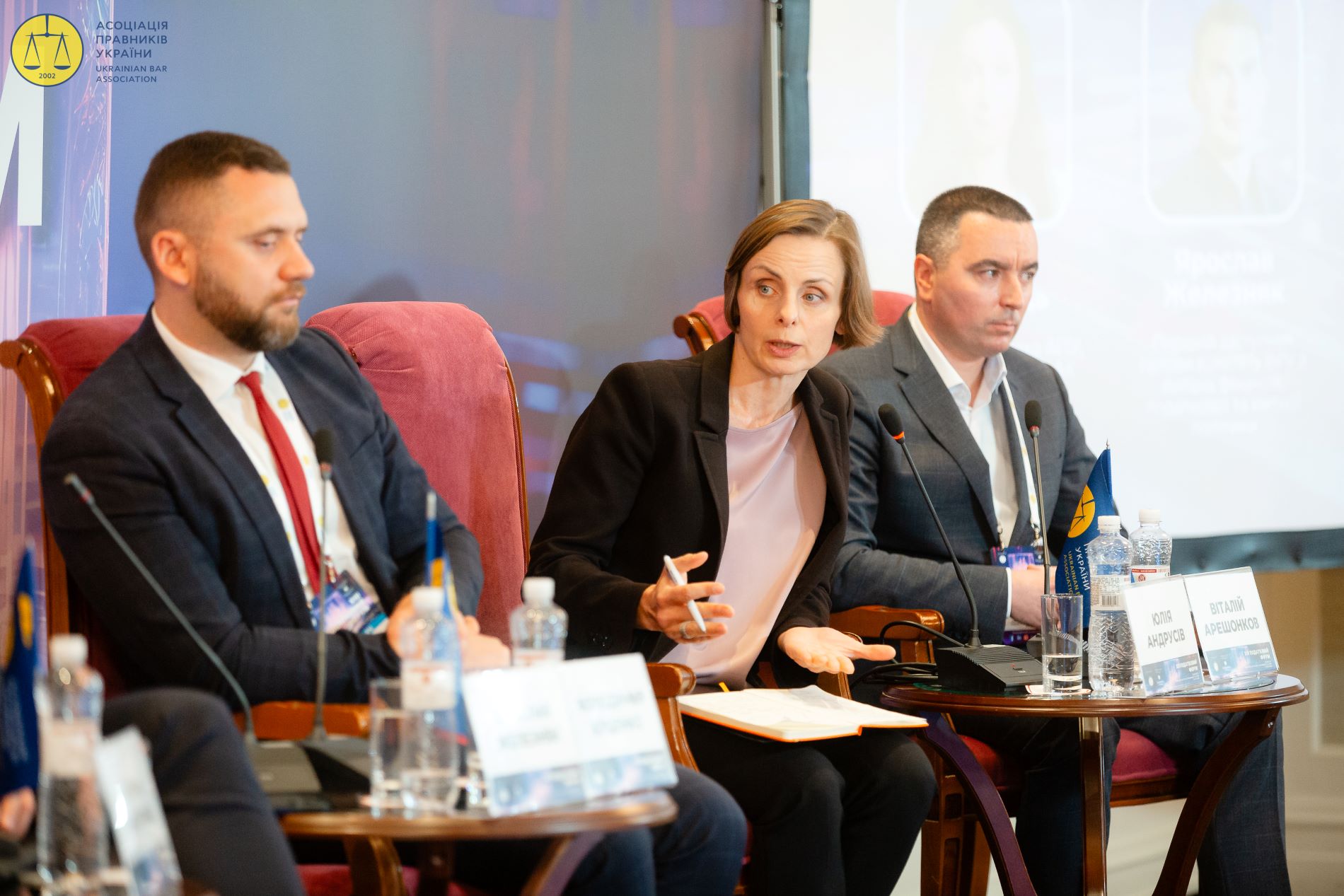
Volodymyr Kutsenko, Senior Inspector at the Business Ombudsman Council, reported that by September 2024, the Council had received around 550 tax-related complaints, with the majority (27%) concerning the non-enforcement of court rulings on tax invoice registration. The second most common issue involved challenges to the results of tax audits (PRESENTATION).

Yaroslav Zheleznyak, First Deputy Chairman of the Verkhovna Rada Committee on Finance, Tax, and Customs Policy, detailed the process of rebooting the Economic Security Bureau of Ukraine. He noted that all proposals from international partners regarding the selection of the new ESBU head have been received. Once a new director is appointed, an attestation commission will be formed (comprising 12 members — six appointed by the ESBU head and six by international partners upon the recommendation of Ukrainian businesses). A commission for selecting other ESBU employees will also be established.
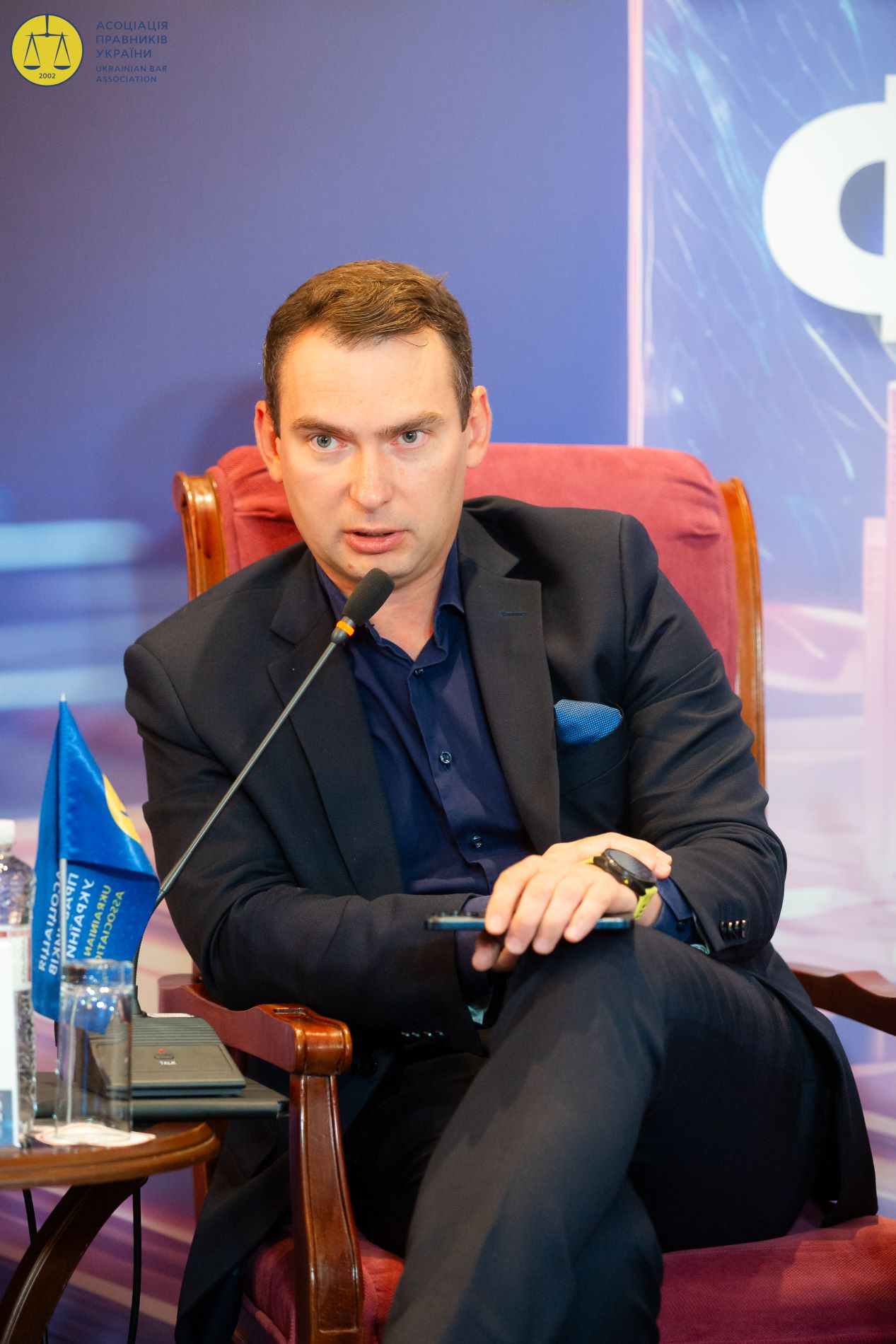
On customs reform, Mr. Zheleznyak mentioned plans for selecting a new customs chief and gradually re-certifying customs officials. Integrity declarations will also be checked by a disciplinary commission.
According to the MP, the tax service also requires reform, but this process will take longer due to the large number of employees involved.
Vitalii Areshonkov, Head of the Department of Information Analysis and Risk Management at the Economic Security Bureau of Ukraine, emphasized that the ESBU should not only react to detected violations but also work proactively to prevent them by identifying their root causes. He noted that the Bureau does not have direct control or audit functions, relying instead on other agencies for these tasks.
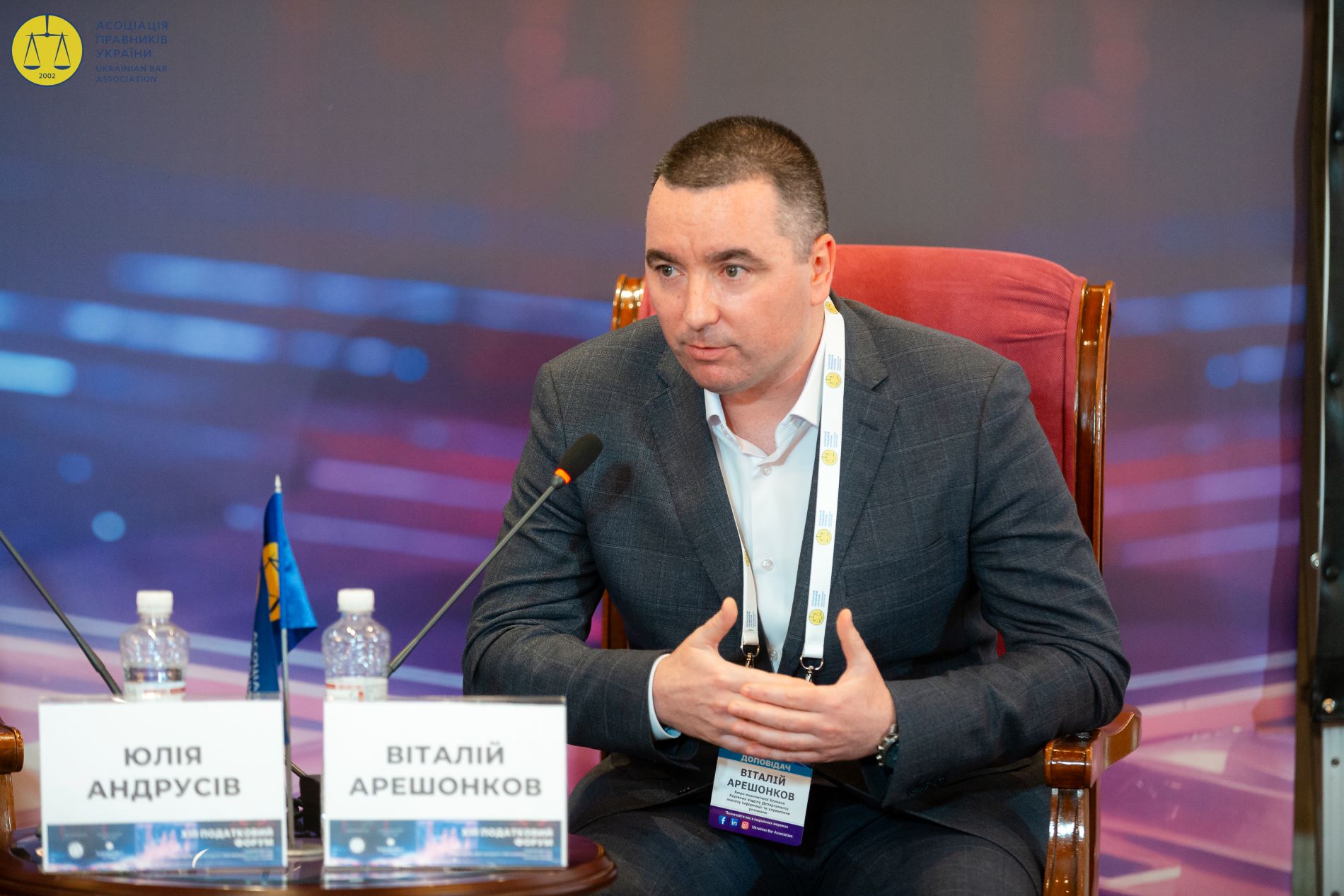
The second session of the 13th Tax Forum was dedicated to trends in tax audits, focusing on their resumption.
Experts examined several important issues related to tax audits, including:
- The grounds for including taxpayers in audit schedules.
- Decisions on granting or denying access to audits: risks for taxpayers and case law on challenging audit orders.
- The period for which tax authorities can currently conduct audits, and what documents they can review, taking into account the statute of limitations set by the Tax Code of Ukraine.
- Current issues arising during tax audits following their resumption.
- Trends in tax audits concerning transfer pricing: what to expect and what the tax authorities are currently focusing on.
The panel was moderated by Vasyl Andrusyak, attorney, Partner and Head of the Tax Law Practice at MORIS, Board Member of the UBA Committee on Tax and Customs Law.
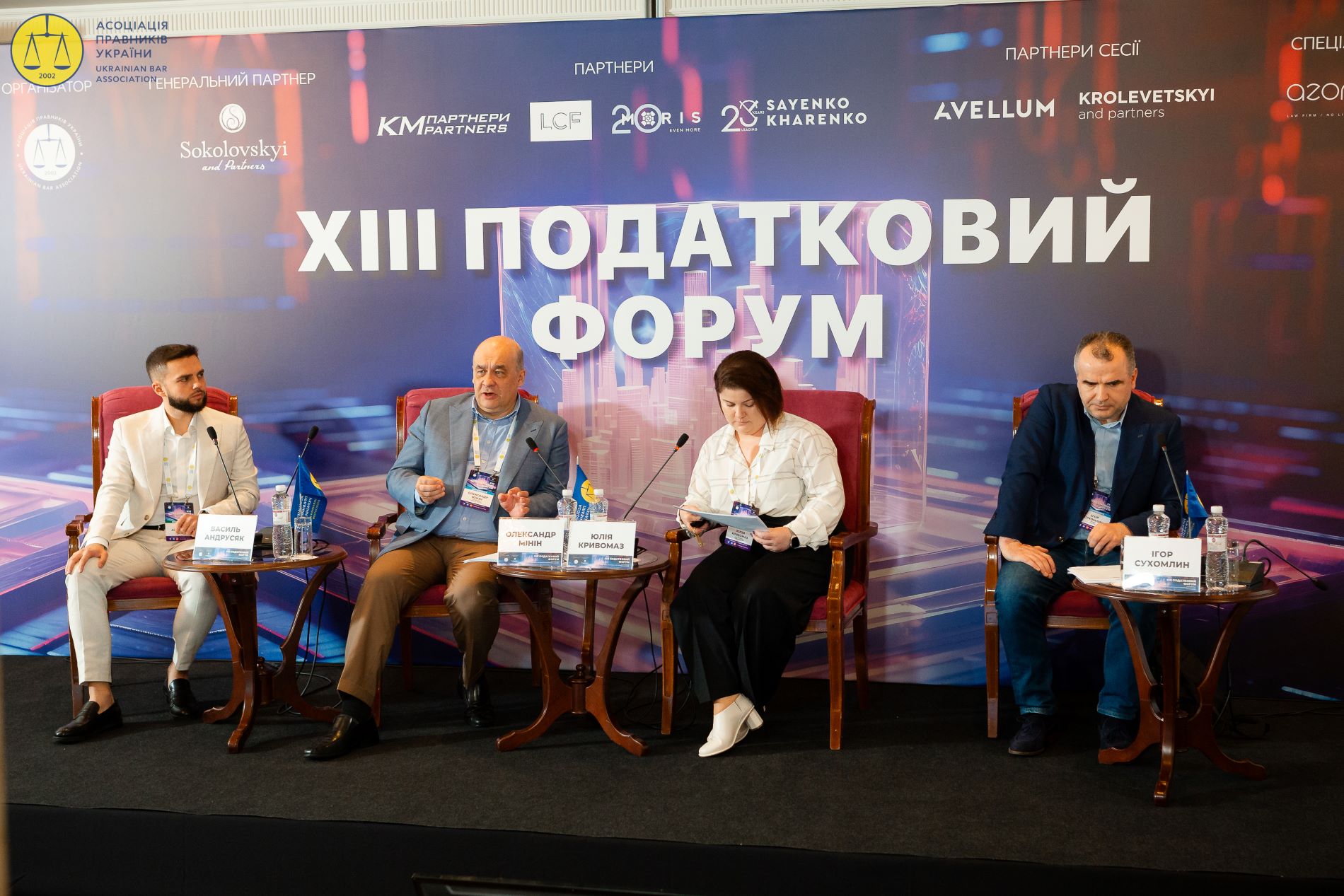
The discussion featured:
- Oleksandr Minin, Senior Partner at KM Partners;
- Yuliia Kryvomaz, Senior Counsel at KM Partners, Board Member of the UBA Committee on Tax and Customs Law;
- Ihor Sukhomlyn, Partner and Head of Tax Practice at AZONES.
Oleksandr Minin and Yuliia Kryvomaz emphasized the importance of ensuring that there are legitimate grounds for conducting an audit.
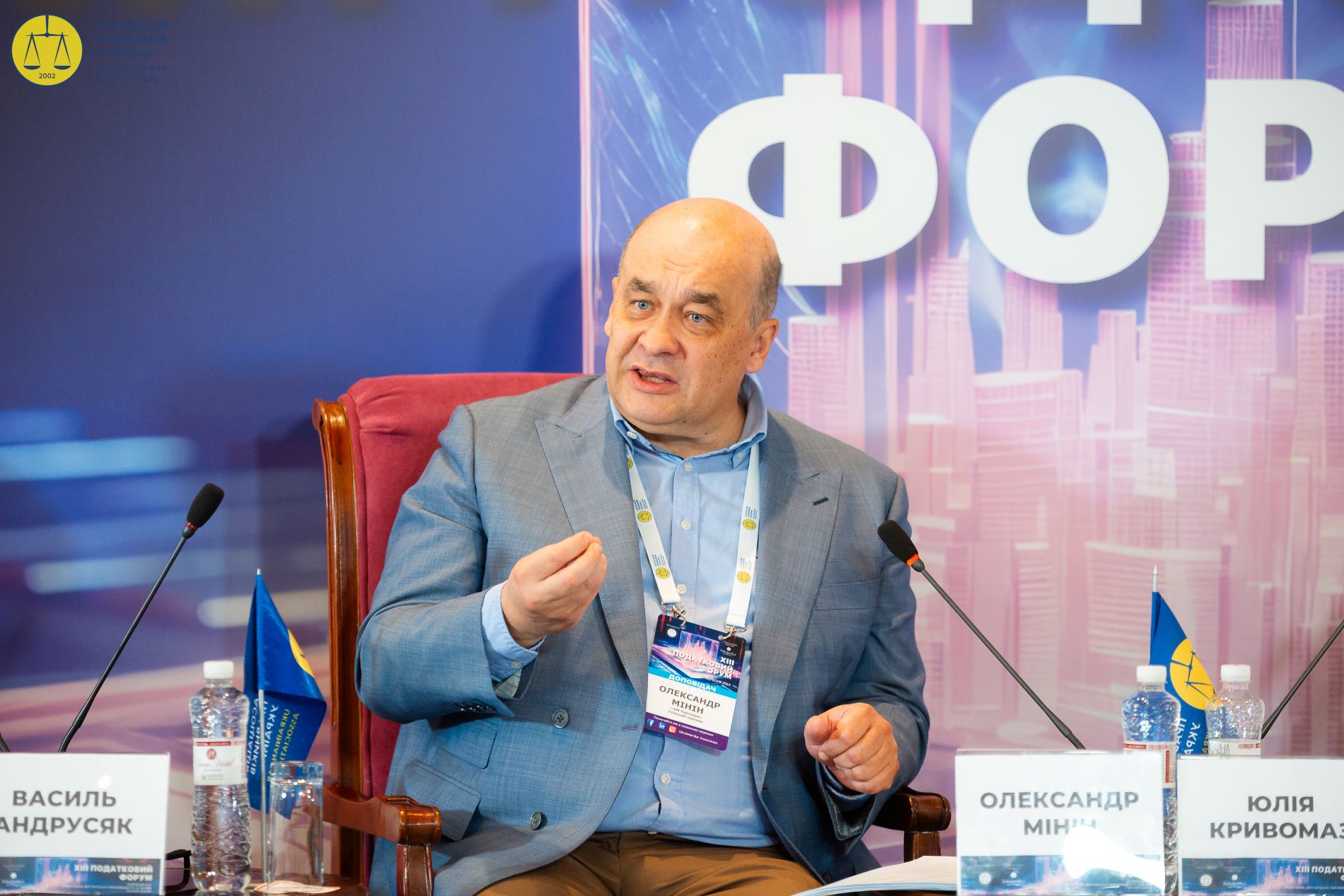
Ms. Kryvomaz also pointed out that the audit scheduling rules for 2024 are set out in Subparagraph 69.35-2 of Section XX "Transitional Provisions" of the Tax Code, which outlines both "absolute" and "relative" criteria for determining which taxpayers will be subject to audits.
If no further changes are made to tax legislation, Oleksandr Minin and Yuliia Kryvomaz noted that by 2025, audits will likely be carried out in full according to general rules (PRESENTATION).
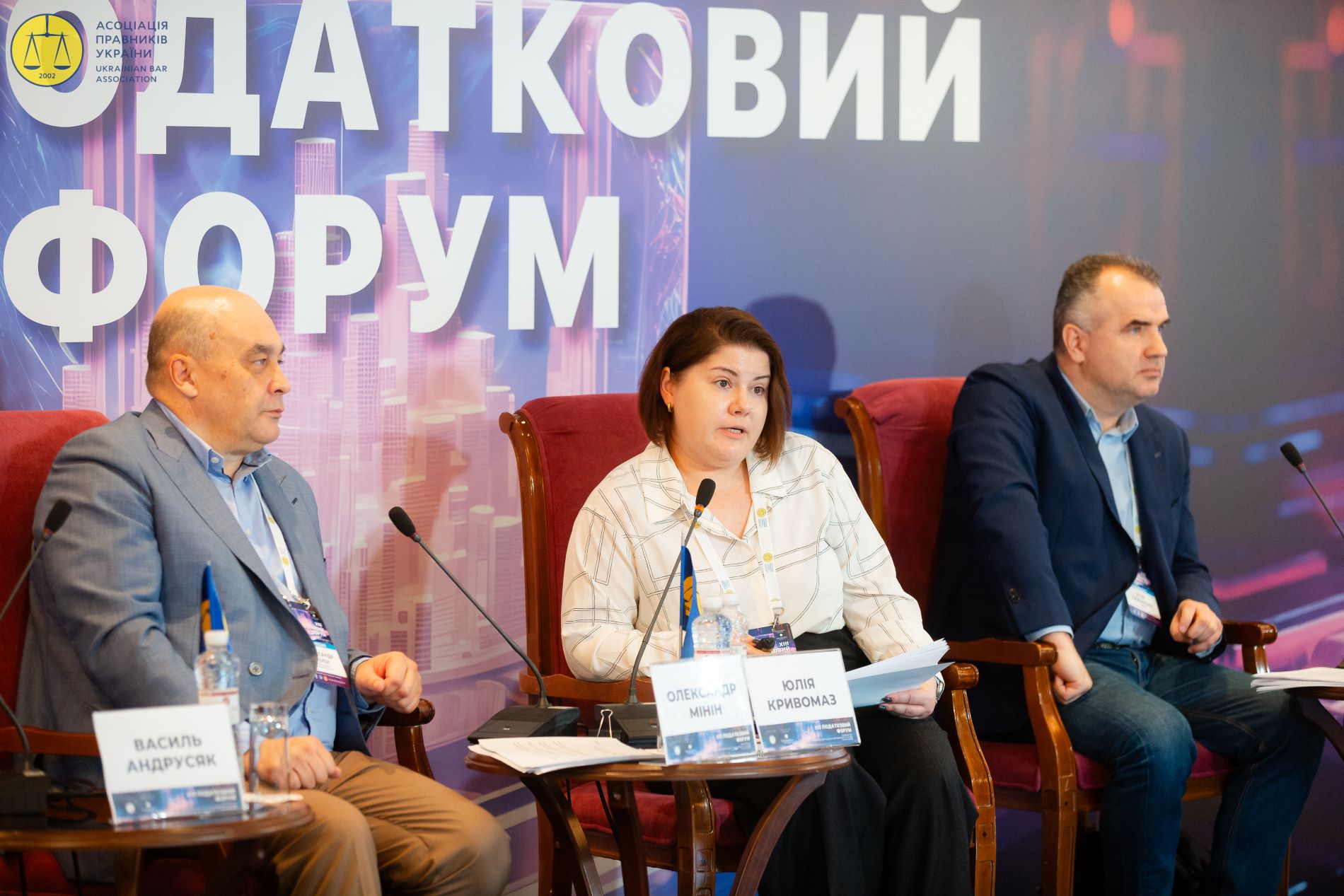
The third session of the 13th Tax Forum addressed international taxation.
The discussion covered topics such as:
- Reporting on controlled foreign companies (CFC): results of tax authorities' review of reports, initiated audits, additional assessments, penalties imposed, planned changes to CFC rules, and reporting.
- Residency: approaches to determining tax residency status and the procedure for confirming the loss of Ukrainian tax residency.
- CRS: when it will be implemented and what taxpayers should expect.
- Requests from the Ukrainian tax authorities to foreign companies and the responses received.
- Appropriate substance for (1) beneficial ownership, (2) CFC purposes, and (3) affecting the recognition of permanent establishments.
- Active and passive CFC income: approaches taken by the tax authorities.
The panel was moderated by Anton Zaderyholova, Partner at AVELLUM.
Speakers included:
- Kateryna Ryzhenkova, Head of the Transfer Pricing Department at the State Tax Service of Ukraine;
- Andriy Reun, Partner and Head of Tax Law Practice at LCF Law Group, Chair of the UBA Committee on Tax and Customs Law;
- Maryna Tomash, CEO at Tomash Consulting, Deputy Chair of the UBA Committee on Tax and Customs Law;
- Ruslana Pyvovarova, Partner and Head of Tax Law Practice at Krolevetskyi & Partners;
- Ivan Chopyk, Lawyer at Sayenko Kharenko.
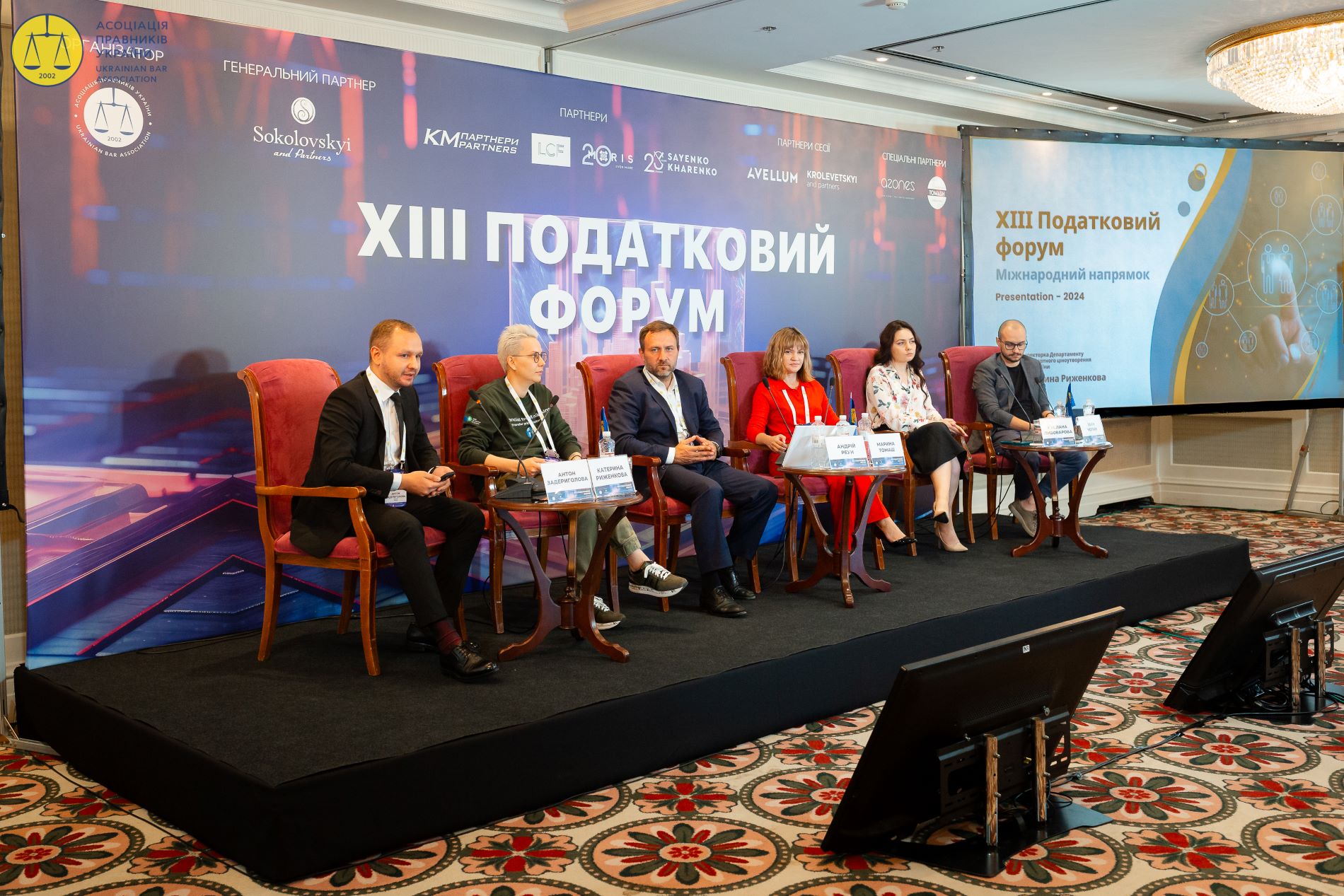
The Forum concluded with an interview featuring Nataliia Blazhivska, Judge of the Cassation Administrative Court within the Supreme Court. In her conversation with Andriy Reun, the judge discussed recent trends in tax litigation.
The interview touched on key issues in tax litigation, including:
- Challenging audit orders: when is it possible and when is it not?
- Illegality of audit appointments as an unconditional basis for canceling tax assessment notices.
- Foreign exchange penalties: is it legitimate to apply them during the suspension of deadlines under martial law?
- Tax cases during martial law: how to prove the impossibility of fulfilling tax obligations?
- Tax disputes in bankruptcy procedures: recent practices of the Cassation Administrative Court within the Supreme Court.
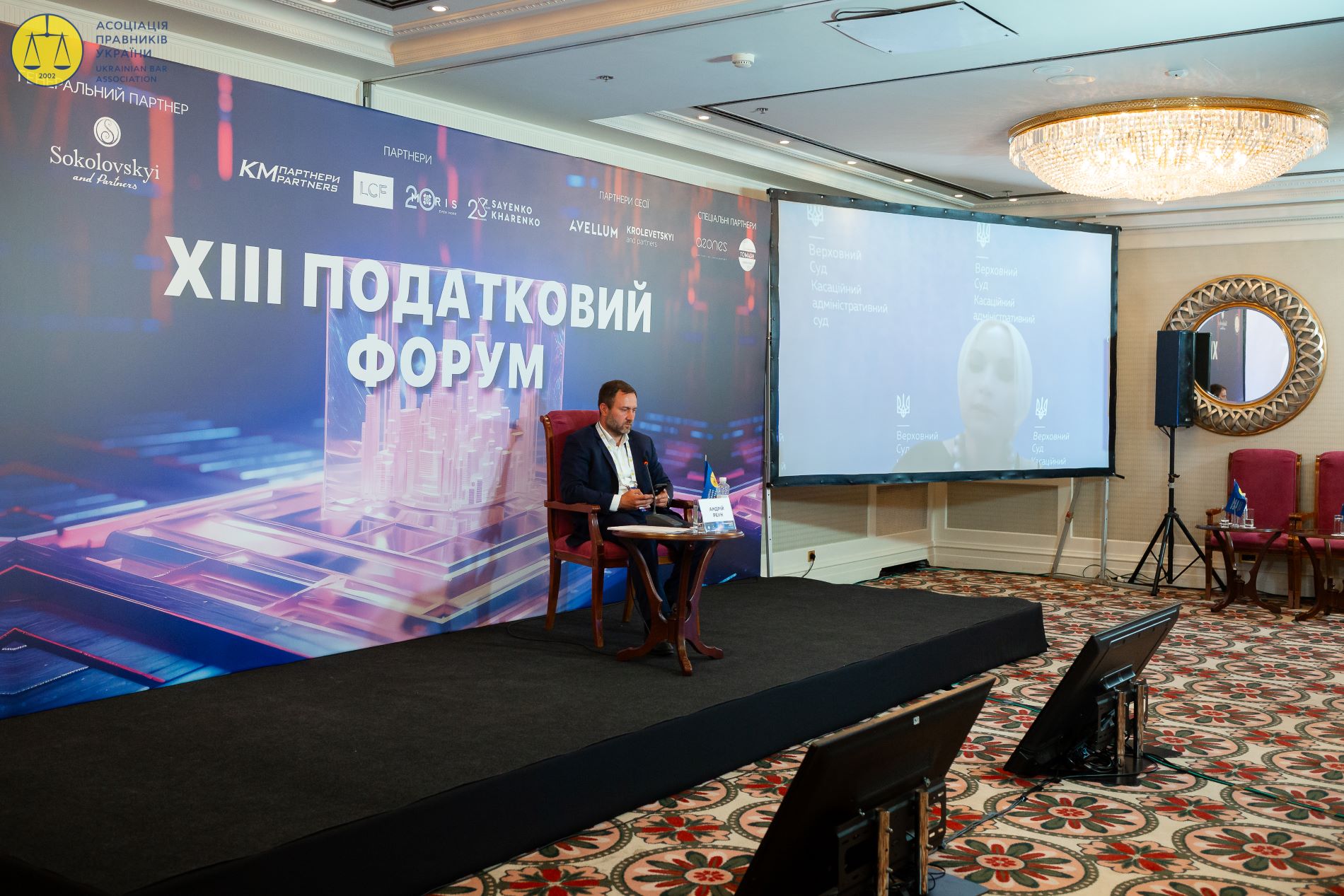
You can view the cases mentioned by Judge Blazhivska during the interview at this link.
More photos from the event can be viewed here.
The UBA expresses its gratitude for the financial support of the Forum’s organization to:
- General Partner: Sokolovskyi and Partners;
- Partners: KM Partners, LCF Law Group, MORIS, Sayenko Kharenko;
- Session Partners: AVELLUM, Krolevetskyi & Partners;
- Special Partners: AZONES, Tomash Consulting.
Tags: UBA activities, UBA events
